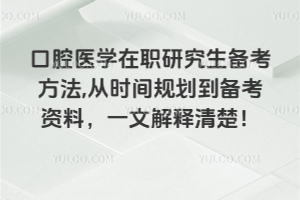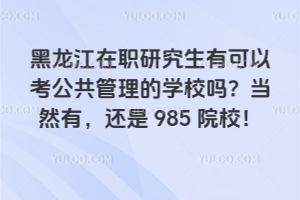- 微信公眾號(hào)

政策解讀
- 微信小程序

快速擇校

政策解讀

快速擇校
Passage 2
When a consumer finds that an item she or he bought is faulty or in some way does not live up to the manufacturer’s claim for it, the first step is to present the warranty (保單), or any other records which might help, at the store of purchase. In most cases, this action will produce results. However, if it does not, there are various means the consumer may use to gain satisfaction.
A simple and common method used by many consumers is to complain directly to the store manager. In general, the “higher up” the consumer takes his or her complaint, the faster he or she can expect it to be settled. In such a case, it is usually settled in the consumer’s favor, assuming he or she has a just claim.
Consumers should complain in person whenever possible, but if they cannot get to the place of purchase, it is acceptable to phone or write the complaint in a letter.
Complaining is usually most effective when it is done politely but firmly, and especially when the consumer can demonstrate what is wrong with the item in questions. If this cannot be done, the consumer will succeed best by presenting specific information as to what is wrong, rather than by making general statements. For example, “The left speaker does not work at all and the sound coming out of the right one is unclear” is better than “This stereo does not work.”
The store manager may advise the consumer to write to the manufacturer. If so, the consumer should do this, stating the complaint as politely and as firmly as possible. But if a polite complaint does not achieve the desired result, the consumer can go a step further. She or he can threaten to take the seller to court or report the seller to a private or public organization responsible for protecting consumers’ rights.
1. When a consumer finds that his purchase has a fault in it, the first thing he should do is to ______.
A. complain personally to the manager
B. threaten to take the matter to court
C. write a firm letter of complaint to the store of purchase
D. show some written proof of the purchase to the store
2. If a consumer wants a quick settlement of his problem, it’s better to complain to ______.
A. a shop assistant B. the store manager
C. the manufacturer D. a public organization
3. The most effective complaint can be made by ______.
A. showing the faulty item to the manufacturer
B. explaining exactly what is wrong with the item
C. saying firmly that the item is of poor quality
D. asking politely to change the item
4. The phrase “live up to” (Para. 1, Line 2) in the context means ______.
A. meet the standard of B. realize the purpose of
C. fulfill the demands of D. keep the promise of
5. The passage tells us ______.
A. how to settle a consumer’s complaint about a faulty item
B. how to make an effective complaint about a faulty item
C. how to avoid buying a faulty item
D. how to deal with complaints from customers
特別聲明:①凡本網(wǎng)注明稿件來(lái)源為"原創(chuàng)"的,轉(zhuǎn)載必須注明"稿件來(lái)源:育路網(wǎng)",違者將依法追究責(zé)任;
②部分稿件來(lái)源于網(wǎng)絡(luò),如有侵權(quán),請(qǐng)聯(lián)系我們溝通解決。

在職研究生報(bào)名及申請(qǐng)條件因報(bào)考方式和院校不同而有所差異。報(bào)名方式主要包括同等學(xué)力申碩、非全日制研究生、中外合作辦學(xué)等;申請(qǐng)條件一般要求具有本科及以上學(xué)歷,部分專...

財(cái)務(wù)管理在職研究生考試科目因報(bào)考方式不同而有所差異。同等學(xué)力申碩入學(xué)無(wú)考試,后期申碩考試包括外國(guó)語(yǔ)水平和學(xué)科綜合水平兩門;非全日制研究生需要參加全國(guó)碩士研究生統(tǒng)...

農(nóng)林經(jīng)濟(jì)管理在職研究生有用嗎?在職人士最擔(dān)心的農(nóng)林經(jīng)濟(jì)管理在職研究生有用嗎的3個(gè)誤區(qū),用實(shí)際情況一一反駁:疑問(wèn)1:非農(nóng)業(yè)背

口腔醫(yī)學(xué)在職研究生備考方法主要包括制定科學(xué)的備考計(jì)劃、選擇合適的學(xué)習(xí)資料、注重基礎(chǔ)知識(shí)的學(xué)習(xí)、多做真題和模擬題、參加專業(yè)培訓(xùn)課程等。備考過(guò)程中要注重理論與實(shí)踐相...

黑龍江在職研究生有可以考公共管理的學(xué)校,哈爾濱工業(yè)大學(xué)作為黑龍江省的985院校,開(kāi)設(shè)了公共管理在職研究生項(xiàng)目。該項(xiàng)目面向在職人員,采用靈活的學(xué)習(xí)方式,培養(yǎng)具有現(xiàn)...

軟件工程在職研究生雙證認(rèn)可度極高,政策與市場(chǎng)雙重保障:按教育部規(guī)定,其學(xué)歷證、學(xué)位證與全日制雙證法律效力一致,學(xué)信網(wǎng)、學(xué)位網(wǎng)可查,考公、評(píng)職稱無(wú)區(qū)別對(duì)待。企業(yè)端...
在職研究生
入學(xué)考試
在職研究生
有用嗎
在職研究生
如何報(bào)考
在職研究生
報(bào)考流程
在職研究生
報(bào)名條件
在職研究生
學(xué)費(fèi)一覽表
在職研究生
考哪些科目
在職研究生
怎么報(bào)名
在職研究生
一年考幾次
評(píng)論0
“無(wú)需登錄,可直接評(píng)論...”